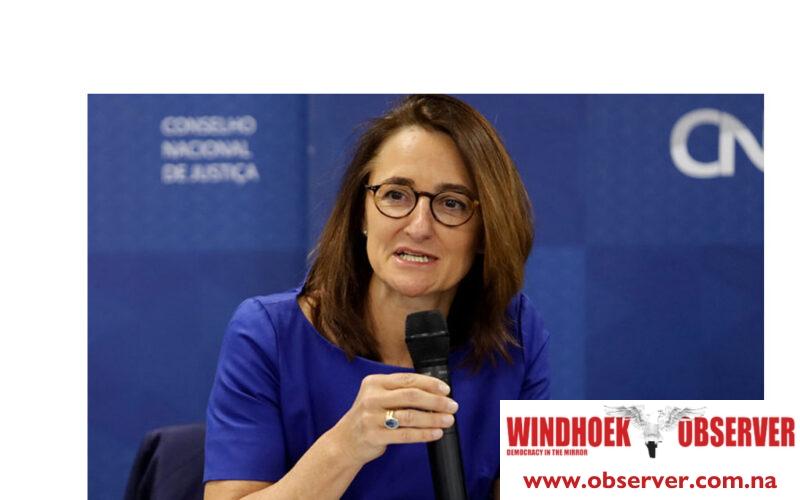Erasmus Shalihaxwe
The European Union’s (EU) Ambassador to Namibia, Ana Beatriz Martins, has announced that the economic bloc is working around the clock to ensure that Namibia is removed from the Financial Action Task Force’s (FATF) grey list.
She announced this on Monday.
According to her, Namibia has made progress ever since it was greylisted in February to ensure its removal from the list of non-compliant countries.
“They called on us two months ago, and we are very happy that within months we have been able to bring Namibia into the EU-funded project called SK for African countries, where we fund Europeans and African experts to assist and help countries that are either on the list or risk getting on the list,” she said.
The EU provides countries with experts and peer-to-peer support to get off the list.
Getting Namibia off the grey list, according to her, is a priority for the EU.
Martins said the world is currently facing increasingly sophisticated organised crime, with trafficking organisations laundering their money and carrying out their criminal activities.
“We are very supportive and committed to helping Namibia strengthen its regulatory framework in addressing anti-money laundering or fighting money laundering. Therefore, we are delighted to have this one-week training course with experts from Kenya who are going to work with 30 officials from seven agencies for Namibia that are coordinated by the financial intelligence centre,” said Martins.
She said Namibia has already made significant strides in implementing some of the FATF’s recommendations.
“They nevertheless called on the EU for technical assistance to implement the last part of the recommendations, and we have been approached by the financial intelligence agency that coordinates the regulatory framework as well as enforcement on behalf of Namibia,” she said.
In February of this year, Namibia was grey-listed by FATF and placed under increased monitoring.
This was due to concerns about the remaining effective implementation of compliance with international anti-money laundering (AML), combating terrorism financing (CFT), and combating proliferation financing (CPF) standards.
At the time, the Bank of Namibia, which is tasked with implementation, announced that, as a signatory to various United Nations Conventions and obligated by mandatory resolutions under Chapter VII of the UN Charter, Namibia is tasked alongside other UN Member States to actively and effectively prevent and combat money laundering (ML), terrorist financing (TF), and proliferation financing (PF).
“These obligations aim to safeguard the integrity and stability of the financial system and contribute to overall safety and security,” said the central bank.




